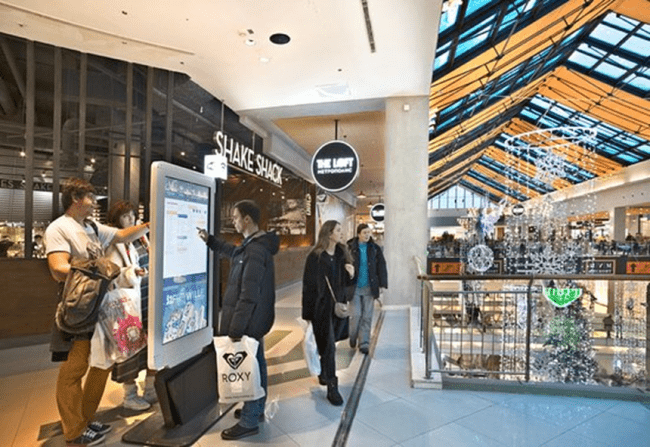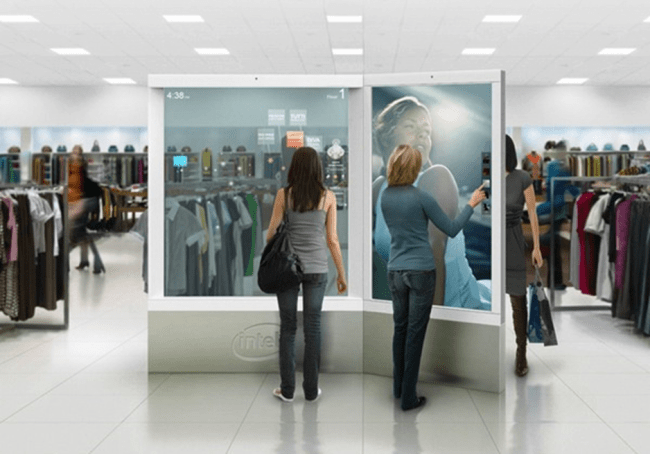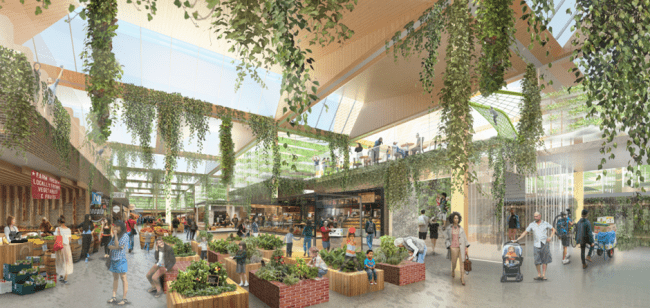One of the sectors that has experienced the most impact after the forced digitization of recent years is retail. Gradually, digitization has been integrated into the daily life of shopping malls and many brands have focused on this innovation, in order to differentiate themselves and adapt to the new habits of their customers.
In this process, it’s necessary in shopping malls to offer digital transformation and omnichannel experiences, to be able to bring the purchasing process closer and add value. Sustainability has also become a key aspect for the sector, after this pandemic, above all, offering the consumer the security of being outdoors. In addition, they have to help to generate these experiences and provide this added value for the consumer.
Shopping malls are committed to digitalization

As the rest of society, retail and shopping malls are going through the necessary digitization process to adapt to the new times, and it is doing so at the pace that marks one of the greatest revolutions that this sector has experienced: e-commerce.
E-commerce has caused changes in purchasing habits, and shopping malls must see an opportunity in it, for which they will have to adapt, providing and promoting the importance of the physical store as a point of direct contact between consumers and brands. Creating specific spaces within our malls for the location of collection points (lockers, citypaq, click and collect, etc.) is now essential.
In addition, to analyze consumer behavior, we can use analytics and Big Data.
Flame collect and deliver data that turns into meaningful information and practical results for our clients. Devices that count people or location analytics to know the flows of visitors and the movement of buyers… Solutions that help us to have a complete picture of the customer’s journey and their behavior in shopping malls, boosting sales and profitability.
The mall, from shopping to experiences

Now, visitors to shopping malls value more the presence of new forms of leisure and entertainment, which end up revitalizing the space.
Experiential marketing consists of creating an emotional bond between the customer and the brand, which can occur before or during the purchase. It is about causing different emotions and experiences that reach consumers and strengthen the relationship beyond the purchase itself.
In the end, the customer’s senses are stimulated in a positive way, greater commitment is achieved and the result is increased sales.
Experiential marketing achieves consumption based on positive experiences that make the customer feel good. Therefore, stronger and lasting relationships are established. The user will want to go back to the mall to relive the emotions he has felt. The result of that engagement is a higher conversion rate and, not surprisingly, increased profits.
A sustainable mall improves its performance

Shopping malls are committed to improving environmental management in their processes and facilities.
There are studies that say that malls that meet these characteristics in sustainability have between 6-7% more improvement in performance than others.
Thus, measures are being implemented that reduce the environmental footprint, such as, for example, the enhancement of natural light and green spaces, the provision of places for electric cars, the use of renewable energies and the rational use of water and lighting effervescent.

 People Counting
People Counting Conversion Analytics
Conversion Analytics Customer Behavior
Customer Behavior Occupancy Management
Occupancy Management Queue Analytics
Queue Analytics Restroom Management
Restroom Management Guest Wifi Marketing
Guest Wifi Marketing Corporate WiFi Access
Corporate WiFi Access Retail
Retail Shopping malls
Shopping malls Hospitality
Hospitality Public Venues
Public Venues